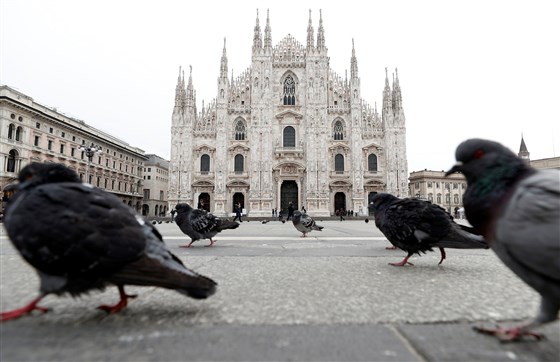
It is no surprise to those that live on the Mediterranean that often policy that is made in Brussels, Berlin, and Paris foresee little impact on the borders of the EU. When many decision are made in the centre of Western Europe, often it is Italy, Spain, Greece and Portugal that have to manage the outcome. What has made many of these issues contentious is that while the policy and funds may come from Brussels, actual physical help is more often than not denied. Since before 2007’s migrant crossings, it has always been the border patrols and national Navys that have to manage a problem that is sometimes exacerbated from another country’s actions. With reduced help, the response by national governments to EU policy places the enforcement officers as well as migrants themselves at greater risk.
The significance of Milan and the region of Lombardy is the economic centre of not only Italy and its northern region, but is a key hub between Vienna, the Swiss centres of Zurich and Geneva as well as Southern France, most notably Marseilles, Nice and Lyon. When the virus hit Milan and Lombardy, it amputated much of the economic, cultural and political strength of Europe itself. What many in Italy must be asking is what help could the EU and NATO have provided to address the outbreak sooner, and why was there not more physical help given to Milan and the region when it was apparent that it would be overwhelmed by the pandemic?
Italians are likely to question their place in the EU after the pandemic subsides, considering in great detail the actions by central governments on regions that become increasingly apparent in times of crisis. The region of Alberta in Canada, while ignored almost wholly by the Federal Government and the financial centre in Toronto, has been put under a government created recession over the last few years. With policy designed to halt and disrupt the production of oil and gas from Canada, competitors like Saudi Arabia, Russia, Venezuela, Nigeria and Iran have increasingly entered the world market and have placed local politics at the forefront of the global energy industry. With the ignored economic turmoil in Alberta came permanent job loss, a loss in local revenue and unfortunately suicides. With COVID-19 ravaging Alberta, Canada and the rest of the world, it is likely the case that we are all becoming Alberta , albeit with the support of our community and central governments, a luxury Albertans have not had for years.
With the pandemic still intensely punishing Northern Italy and having spread in equal fashion to Spain and the rest of Europe, it might be too late for resources from one region to be dedicated to another at this point. Whatever can be done, should be done however as this virus will be conquered by the communities we live in, not the governments at the top. Governments should not get in the way of communities trying to help themselves, and in Canada after giving away 16 tonnes of their emergency PPE stock in February, it seems that this might be the case. In an absurd and insulting move, the Prime Minister of Canada has decided to pick April 1st to give all Federal politicians a raise in pay. He also added a tax that discourages the largest national employers, small and medium sized businesses, from hiring in the middle of a guaranteed recession and likely depression in some regions, namely Alberta. With Canada still taking in flights from hot spot countries and having what is surely the most lax health screening measures globally at its international airports, even as late as April 2020, it might be the case that the lessons ignored from Milan will punish Canada as much as it has Italy, Spain and the Europe.